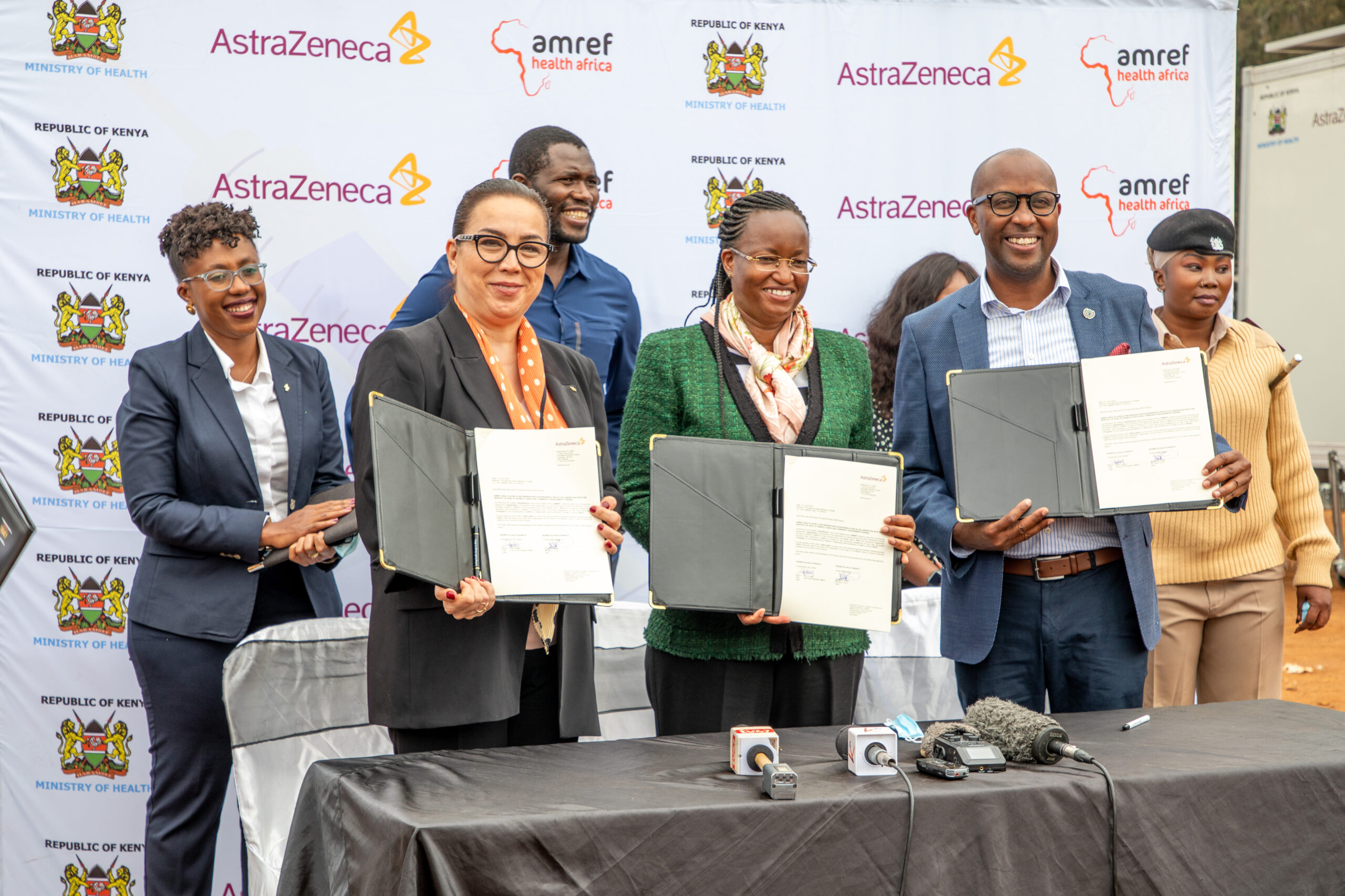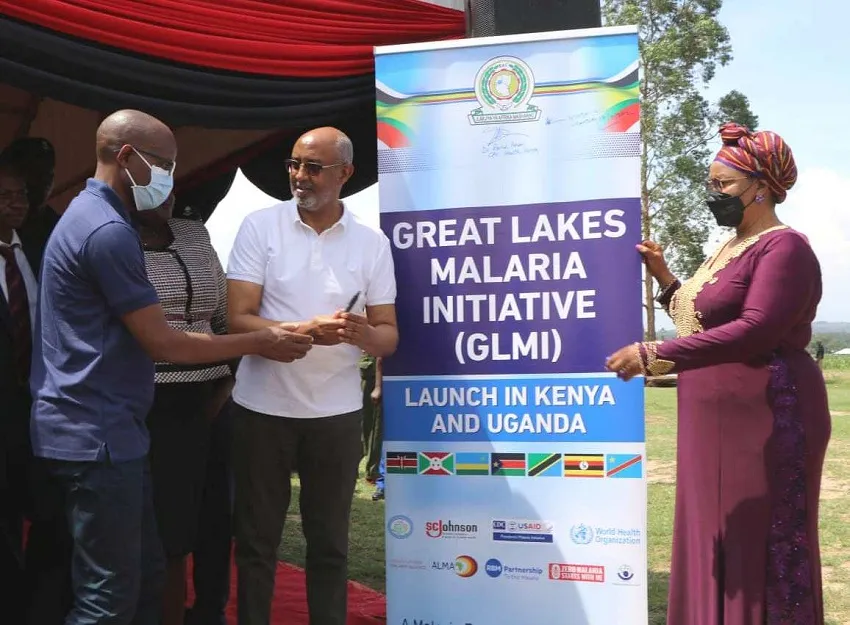Addressing Non-communicable Diseases Effectively to Deliver on Universal Health Coverage
Monday, 20 August, 2018

The burden of Non-communicable Diseases (NCDs) such as Diabetes and Hypertension is on the rise in Kenya mostly due to the adoption of unhealthy lifestyles such as physical inactivity, consumption of unhealthy foods, alcohol intake and tobacco use. The adoption of these lifestyles is largely driven by urbanisation, westernisation and an aging population.
In a bid to address the rising burden of hypertension, AstraZeneca launched the Healthy Heart Africa Project in 2014 to improve access to hypertension care. Through the project, Amref Health Africa in Kenya in collaboration with Gatundu Sub-County hosted an outreach at Gatundu market to raise awareness on hypertension and diabetes and promote early detection. During the two day event, a total of 349 people were screened for blood pressure and 200 screened for blood sugar. A total of 47 people were referred for further management at the Gatundu Level 5 hospital.
Through this project, Amref Health Africa in Kenya currently supports more than 70 health facilities across five counties in Kenya namely: Nairobi, Kiambu, Kirinyaga, Kajiado and Nakuru. Amref Health Africa has been working in partnership with the Kiambu County Government on this project since 2017. Since its inception, the project had reached more than 700,000 people with hypertension screening services and more than 18,000 people have been newly diagnosed and put on hypertension management across the supported health facilities in the five counties. In addition, the project has equipped more than 80 health facilities with blood pressure machines and other equipment and supplies to facilitate hypertension management.
Partnership with patient communities
- The visitors engage a CHV at the centre
- Gatundu residents line up to check their weight
- A nurse briefs the visitors on the projects’ progress
As presented by the goal of the universal health coverage agenda – leaving no one behind, the need to provide accessible, responsive and inclusive health services that engage all population groups, and especially the most vulnerable is essential. Strengthened health literacy and engagement of patient communities, among other groups, are key to achieving sustainable change.
Appreciating the need to build synergies among various patient associations handling specific diseases, Amref Health Africa in collaboration with Kenya Defeat Diabetes Association hosted a meeting of patients’ associations. The need to bring together associations addressing cancer, diabetes, hypertension and other NCDs to work as one entity was discussed. This way, patient communities can effectively air their voices and easily influence actions of various stakeholders, and would help in lobbying for increased allocation of resources needed to address emerging diseases.
“The various patient associations addressing various diseases are currently disjointed, hence creating a room for discrimination and manipulation. Coming together and building synergies is our only option in addressing NCDs,” explained the Chairman of Kenya Defeat Diabetes Association, Mr Reuben Magoko.
Mr Magoko requested the stakeholders present to embrace the idea as it would help people living with NCDs come together under one umbrella body that will lobby for social justice in health service delivery, lobby for implementation of more patient-centred health service delivery, partner with other stakeholders dedicated to improving health and living standards of NCD patients, advocate for social justice and welfare of patients, and collaborate with stakeholders both at international, national and county levels in addressing issues that concern NCD patients. He thanked Amref Health Africa for the continued partnership and for their great input in addressing health issues.
Healthy Heart Africa Project Manager Dr Lilian Mbau emphasised universal health coverage noting that, “There is need to have a universal health coverage program that is geared towards ensuring all people have access to immediate health services that are of high quality.” Dr Mbau noted that non-communicable diseases need to be addressed in order to achieve universal health coverage.










